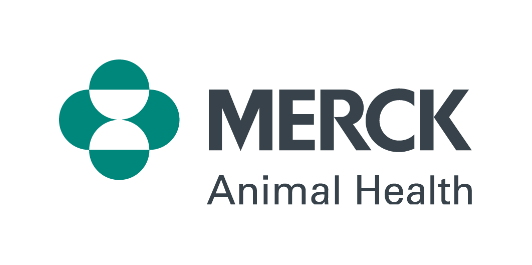Merck Animal Health Proudly Supports Young Researchers at International Symposium on Neglected Influenza Viruses
MADISON, NJ, June 9, 2015 – The 3rd International Symposium on Neglected Influenza Viruses (ISNIV) held in Athens, Georgia was an opportunity for young and upcoming scientists to be recognized. Two Junior Investigator Best Speaker awards and two Junior Investigator Best Poster awards were presented by Merck Animal Health to encourage ongoing research into important aspects of influenza research that may have implications for human as well as animal health.
This year’s conference explored the latest data on surveillance and disease investigation, virus transmission and control, clinical and experimental virology, and emerging issues and new developments related to swine, equine, canine and other non-human/non-avian influenza viruses. The next symposium will be held in 2018 at a site to be determined.
The Best Speaker Awardees:
- Tavis Anderson, Assistant Professor of Parasitology, Georgia Southern University:“An automated tool for quantifying spatial and temporal dynamics of influenza A virus in North American swine”
- Erik Karlsson, Postdoctoral Research Associate, St. Jude Children’s Research Hospital: “Respiratory transmission of an avian H3N8 influenza virus isolated from a harbor seal”
The Best Posters Awardees:
- Mario Aramouni, The Jenner Institute, University of Oxford, The Animal and Plant Health Agency, UK: “H1N1 Transmission parameters and host responses in naïve pigs”
- Sarah Nelson, Research Assistant, Animal Influenza Ecology and Epidemiology Research Lab, The Ohio State University: “Influenza virus A transmission in swine at an agricultural fair, 2014”
The winners reported many challenges to this work, from the basic issues of working with pigs who “are not very friendly” when being introduced together to the complexity of trying to write biology as mathematics for computer programmes.
“Funding bottlenecks were identified as a real hurdle for young scientists and we are pleased to have the opportunity to support the next generation of scientists in this important work,” said Alasdair King, MSD Animal Health. “The zoonotic threat of influenza viruses is real and cannot be ignored. With new outbreaks of influenza occurring more and more frequently, possibly the most important message from all this research came from Erik Karlsson who simply summed it up as ‘Nature won’t wait’”.
About Merck Animal Health
Today’s Merck is a global healthcare leader working to help the world be well. Merck Animal Health, known as MSD Animal Health outside the United States and Canada, is the global animal health business unit of Merck. Through its commitment to the Science of Healthier Animals™, Merck Animal Health offers veterinarians, farmers, pet owners and governments one of the widest range of veterinary pharmaceuticals, vaccines and health management solutions and services. Merck Animal Health is dedicated to preserving and improving the health, well-being and performance of animals. It invests extensively in dynamic and comprehensive R&D resources and a modern, global supply chain. Merck Animal Health is present in more than 50 countries, while its products are available in some 150 markets. For more information, visit www.merck-animal-health.com or connect with us on LinkedIn and Twitter at @MerckAH.
Merck forward-Looking Statement
This news release includes “forward-looking statements” within the meaning of the safe harbor provisions of the United States Private Securities Litigation Reform Act of 1995. These statements are based upon the current beliefs and expectations of Merck’s management and are subject to significant risks and uncertainties. If underlying assumptions prove inaccurate or risks or uncertainties materialize, actual results may differ materially from those set forth in the forward-looking statements.
Risks and uncertainties include but are not limited to, general industry conditions and competition; general economic factors, including interest rate and currency exchange rate fluctuations; the impact of pharmaceutical industry regulation and health care legislation in the United States and internationally; global trends toward health care cost containment; technological advances, new products and patents attained by competitors; challenges inherent in new product development, including obtaining regulatory approval; Merck’s ability to accurately predict future market conditions; manufacturing difficulties or delays; financial instability of international economies and sovereign risk; dependence on the effectiveness of Merck’s patents and other protections for innovative products; and the exposure to litigation, including patent litigation, and/or regulatory actions.
Merck undertakes no obligation to publicly update any forward-looking statement, whether as a result of new information, future events or otherwise. Additional factors that could cause results to differ materially from those described in the forward-looking statements can be found in Merck’s 2014 Annual Report on Form 10-K and the company’s other filings with the Securities and Exchange Commission (SEC) available at the SEC’s Internet site (www.sec.gov).
